SEO Title Tag Optimization: A Complete Guide to Write Title Tags
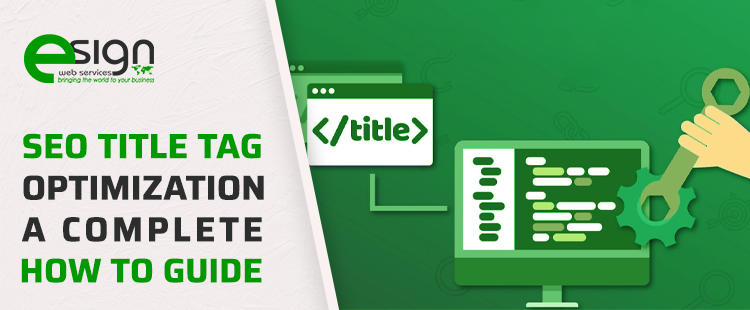
Title tag optimization is an integral part of SEO. In order to improve the rank in SERP results, marketers must adequately optimize their website page title for the search engines. Optimized title tag allows web-spiders to determine whether a website is relevant to the particular search query. Furthermore, attractive and optimized page titles also offer an edge over other competing websites. Hence, to boost a page’s rank in the SERP, marketers must duly focus on creating an adequate title tag for their website.
If you are new to SEO, here is a brief guide to title tag optimization in SEO.
What Is A Title Tag, and Why Is It Necessary?
A website’s title tag is essentially an HTML tag that exists in the header section of each page. The title tags provide the users as well as the web- crawlers a cue about a respective web page that they are about to view. A title tag is essentially featured in SERP result pages as clickable links as well as in the browser window.

Title tag optimization is one of the topmost strategies of On-Page SEO.  As search engine bots crawl website pages, it notes the meta-title tags and uses the associated keywords to adequately understand what a particular page is about and how it can be relevant to related searches.
Furthermore, the title tags are also the first things that your target audience will see. An adequately optimized and well-crafted title tag allows you to create a positive first impression in the mind of the users. It also allows the audience to find fast answers to their search queries and therefore helps your website stand out among the other competing website.
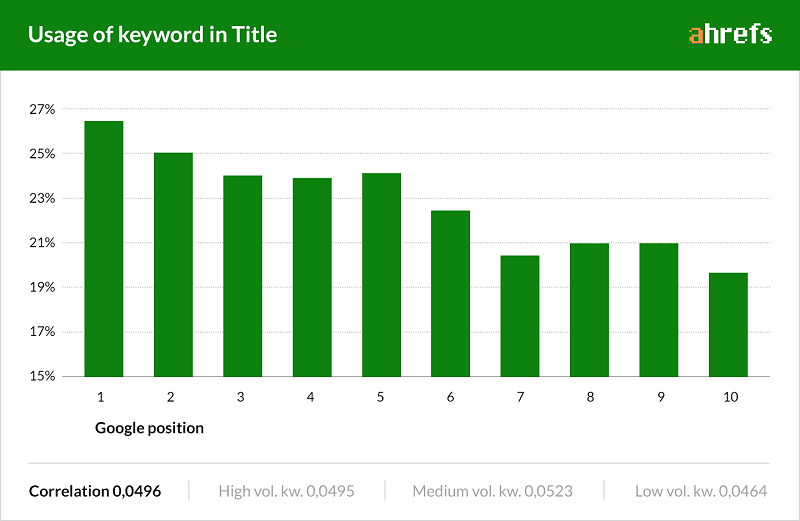
How To Optimize Title Tags?
If you are wondering how to optimize title tags, here are 7 important things that you must consider-
1. Determine where this title tag will appear
For title tag optimization, you must primarily determine where the title tag will appear. As already mentioned above, a website’s title tag appears as a page title list on search engine results, as given in the image below.
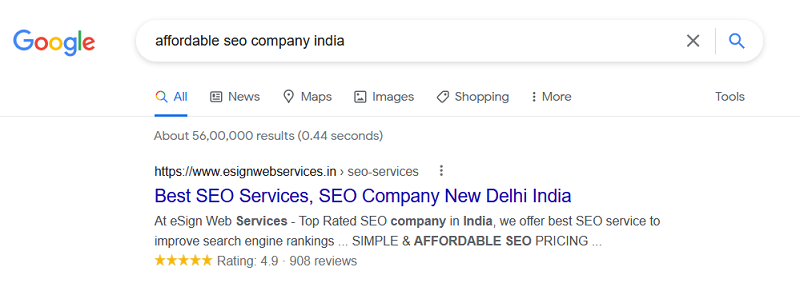
Apart from this, a title tag also appears on web browser tabs and on social media pages. Hence, you need to optimize the title and its length adequately such that it appears attractive and engaging to the readers.
2. Incorporate the Primary Keyword
In order to drive better traffic to your website and make the page more relevant to specific search queries related to your products and services, you must also incorporate the high-volume keywords in the title tag. Using the primary keywords in the title tag not only improves the rank of a website but also increases the chance of high click-through rates. As people in this digital world want to find their answers fast, they will just scan through the first few words of the title and click on the link if they find it relevant.
3. Optimize its formatting
To maximize the result of SEO title tag optimization, you must also take care of the formatting. Though there is not any specific way to frame a title tag, there are some which are recognized to offer better impact by being descriptive and concise. For example-
- Primary Keyword | Secondary Keyword | Branding
- Primary Keyword – Secondary Keyword – Branding
- Primary Keyword, Secondary Keyword – Branding
- Target Keyword | Secondary Keyword| Branding
- Target keyword 1 and ( Secondary Keyword)
- Target Keyword 1, 2, 3, 4, | for sale, etc.
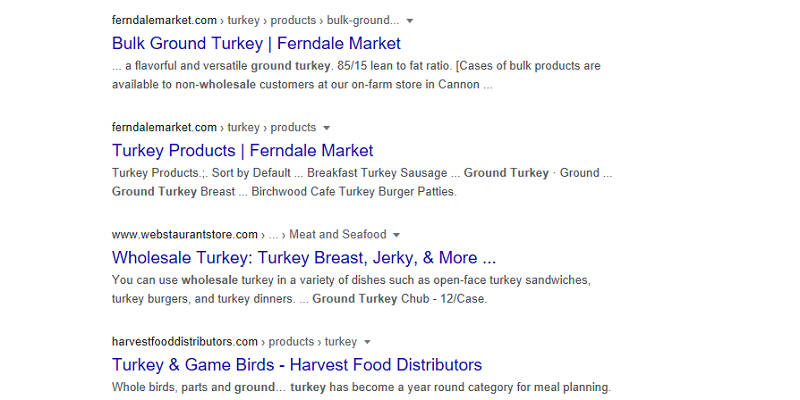
In fact, web crawlers are capable of understanding a wide range of characters like punctuations, letters, numbers, etc. Therefore using such characters to divide the keywords in the title tags will improve your website SEO and also make it more concise and easy for readers.
4. Keep the length in check.
Another important aspect of title tag optimization is to keep the title length under check. Typically a title tag must not be more than 60-65 characters and 200-569 pixels in length. If the title exceeds the said length, it will get shortened in the SERP results. This could also cut off some important words or eliminate the branding section of the tile and adversely impact the website’s click-through rate. In fact, as per the study, title tags with 15-40 characters get 8.6 % higher CTR than the title tags that are beyond the recommended length.
5. Write them for both bots and the readers.
When you frame the title tag, ensure that it is clear for both the bots and the human readers. Your title should offer a gist of your web page’s content. Framing accurate descriptions enable search engine bots to understand what the content of your page is about easily. It also enables the search engine to determine your page’s uniqueness and relevancy for respective search queries. Also, precise titles allow the audience to look for answers when they perform an online search quickly.
Furthermore, you must avoid using auto-generated titles as search engines often consider them duplicate and affect the ranking. Also, the generic title fails to attract the user’s attention and therefore tends to reduce the CTR.
6. Put a call to action
While optimizing the title for your website, you must also integrate a call to action. Call to action is basically actionable phrases like buy, watch, compare, etc. It prompts users to take action. Therefore, using them adequately on the title tag will potentially engage the target audience to click on your website’s link. Hence integrating an adequately optimized call to action in your website’s title tag will improve its CTR, number of organic audiences and ensure unmatched sales & leads.
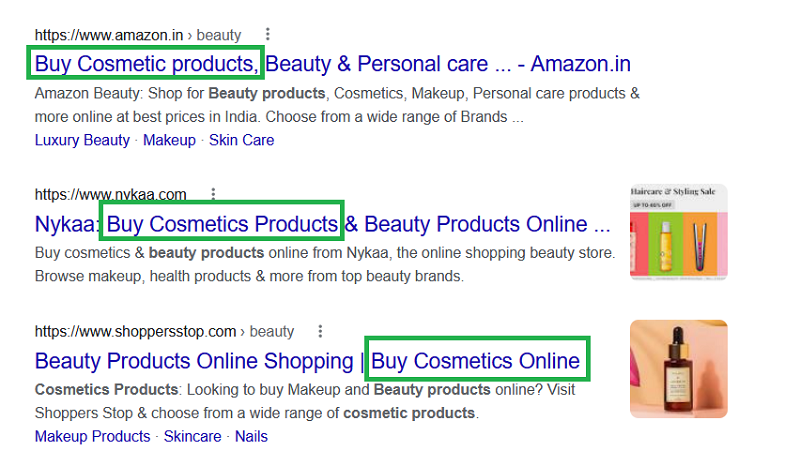
7. Put your brand’s name in it
Last but not least, while you perform a title tag optimization, you must integrate your brand’s name in the title to infuse a sense of credibility. This works wonders specifically for well-known brands. If users already know a brand, they are more likely to click on it than other results on the SERP as they consider it more trustworthy. However, to prevent affecting the readability of your website’s title, integrate your brand’s name towards the end of the title. Also, you can use a colon or hyphen to make the tag look concise and neat.

Aspects To Keep In Mind While Optimizing Title Tags
Here are important aspects to consider when optimizing your title tags for search.
1. The context of your web-page
You must always keep the context of your web page in mind while framing a title tag. There is no point in framing a beautiful title tag that is not relevant to the content of your page. Online users use a title tag to find their answers quickly, and they expect to see an extended version of the title tag in the web page content. If a title tag is not in tandem with the web-page content, it will increase the bounce rate of your website. In a result, you may address the reduced raking of your website in SERP.
2. If the keyword is in line with searcher intent or not
While optimizing the title tag for your, web-page, you must conduct detailed keywords research related to your products and services using advanced online tools like Google Search Console, SEMrush, etc. This will ensure that you use only those keywords that are in line with your user’s search intent.
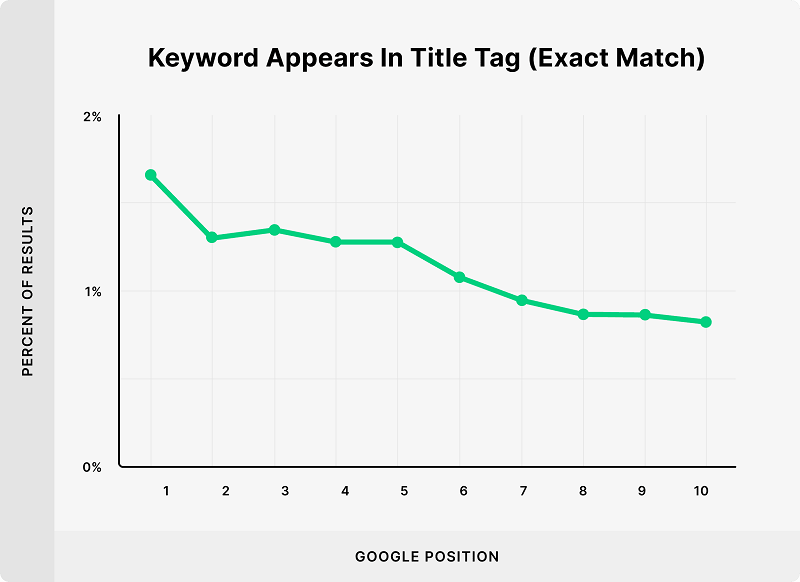
Your target audience may not always use the exact set of keyword matches that you may incorporate in the website title and content. Hence, it is crucial to understand the user’s intent first and accordingly integrate high-volume keywords.¬† You must also find the right variants and synonyms of such keywords and incorporate them into your title tag for better reach.
3. It conveys a clear idea of your page’s content
The importance of title tags is to offer a context of your website’s content to your target audience as well as the web crawlers. Hence, while performing title tag optimization, it is extremely crucial that you frame it in a precise and clear manner. In short, just make it able to offer a clear idea of your page’s content. You must, therefore, focus on descriptiveness, keep it short, and include the target keywords to make it most relatable to the users.¬† ¬†
4. If it is completely unique or not
Uniqueness is a key to SEO-friendly title-tag optimization. A unique title helps web-crawlers identify your website as authentic and valuable for a respective search query.  Hence, while framing the title for your website, you must keep in mind that it is not generic.
Also, you must absolutely avoid integrating default titles like “New page” or “Home” as those are most often considered duplicate by bots. It may show you adverse results and reduce your website’s ranking. Also, you can use CMS and code-based templates to create data-driven, unique titles for all the important pages of your site.
5. The difference between H1 tags and title tags
Both title tags and H1 serve as a clue to the content of your website page, but the difference lies in the location they appear.¬† As already mentioned above, title tags appear as clickable links in the search engine results. On the contrary, H1 tags are essentially the title of the web page content. Therefore, it is a part of the body of the web content and doesn’t appear in search engines.
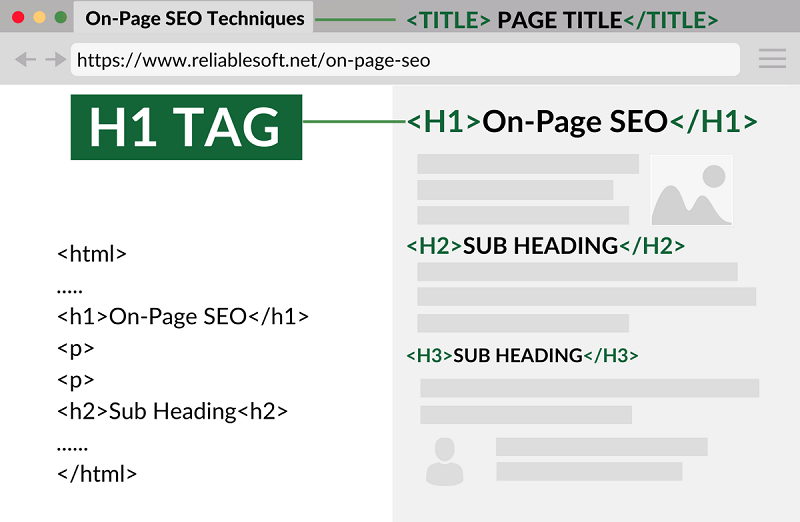
While H1 of a web page can be lengthy, the title tag must not exceed a length of 60-65 characters. Understanding such differences is crucial to framing SEO friendly title for your website page and
Conclusion
Title tag optimization is one of the several important SEO tactics that marketers must duly focus on to enhance their website’s ranking in the SERP results. It is, however, not an easy task. Title tag optimization must be done in conjunction with the contents and other on-page factors to derive the desired results.
Therefore, if you are have still wondering what title tag optimization is, you must get in touch with SEO experts for a detailed understanding and avail adequate assistance in title tag framing, ensuring higher website visibility in search results.



Aw, this was an exceptionally nice post. Finding the time and actual effort to produce a superb article… but what can I say… I put things off a lot and never seem
to get nearly anything done.